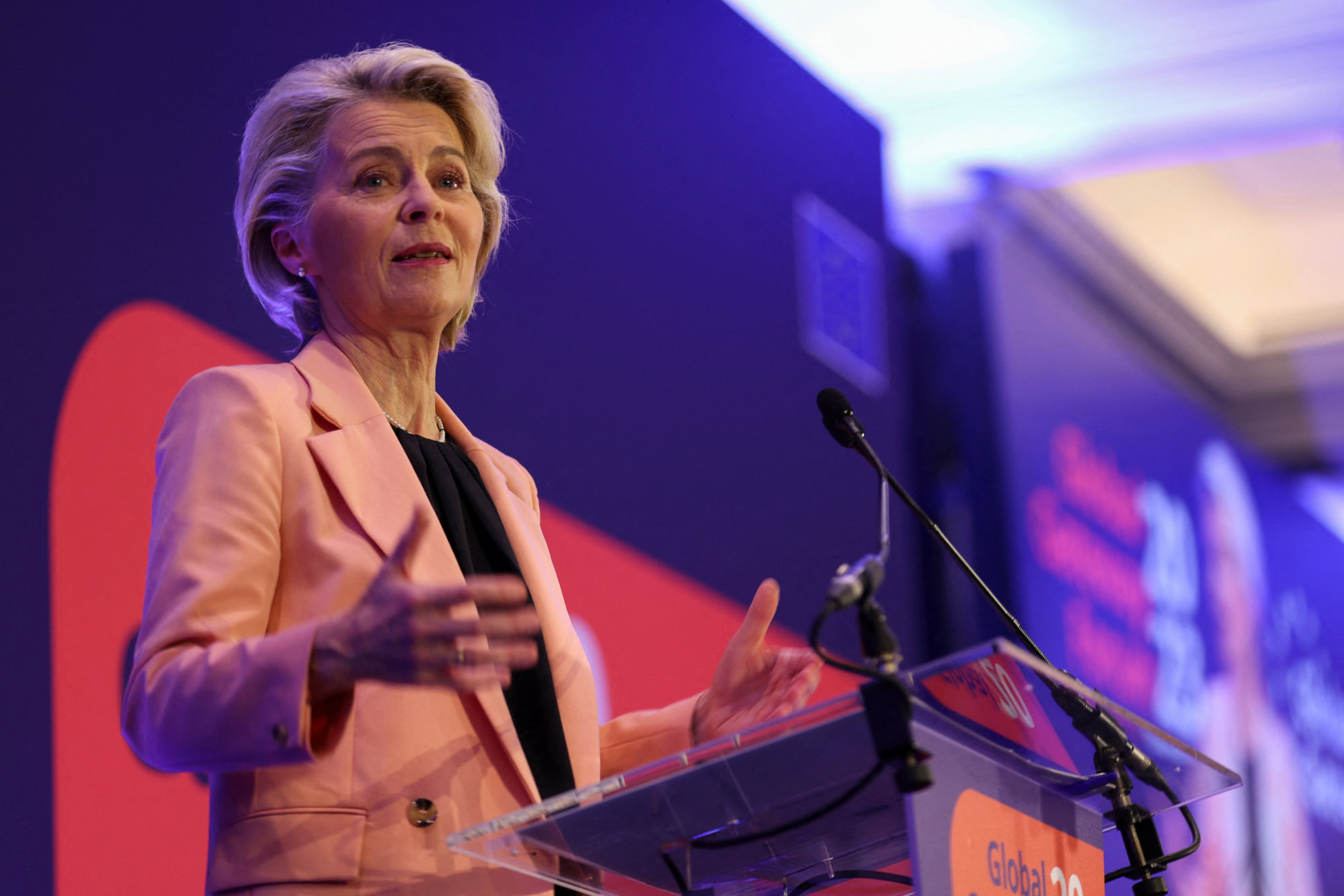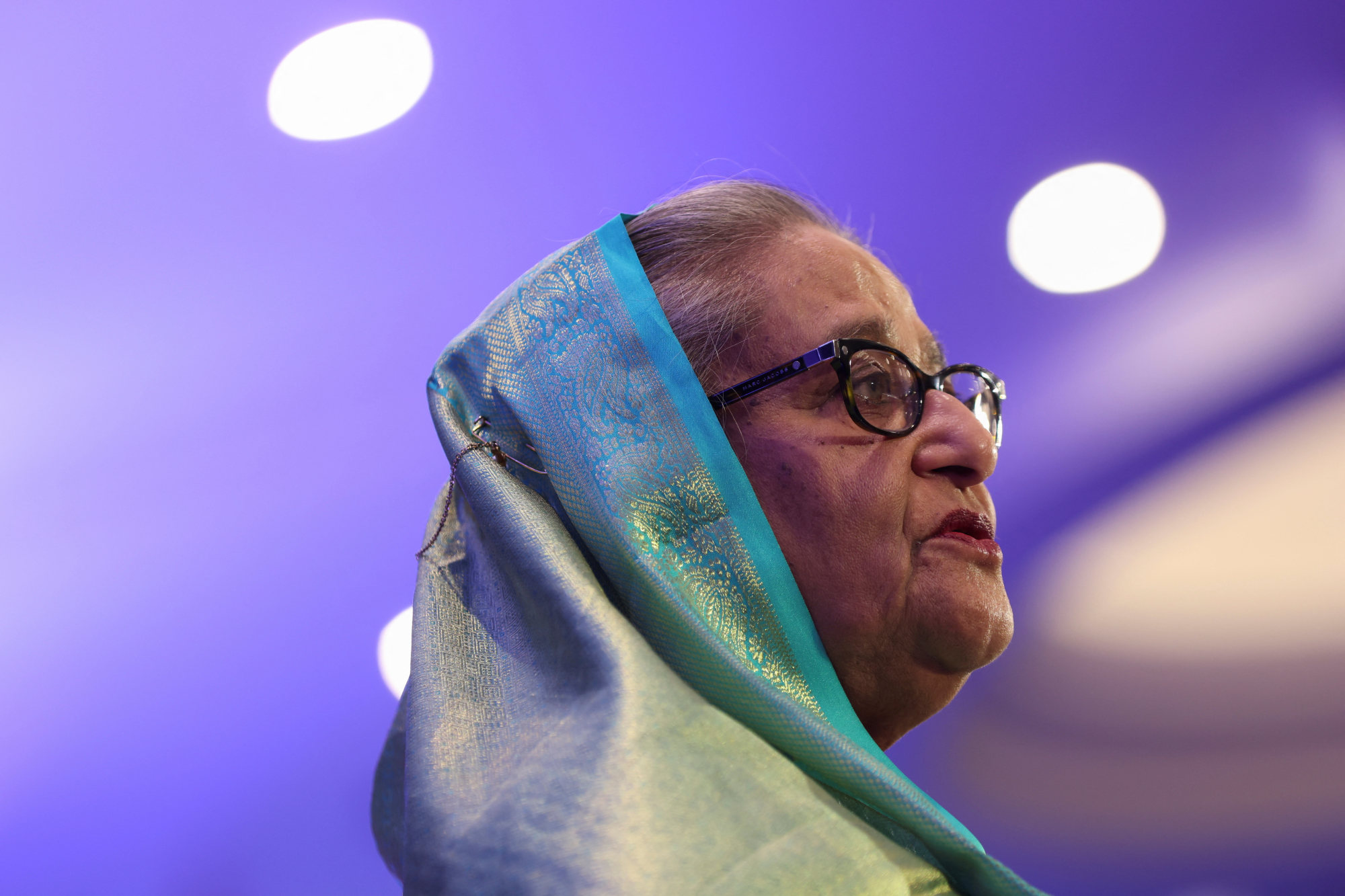On Tuesday, the Post revealed that Energias de Portugal SA (EDP) was among the companies that will advise the commission on “implementation of the Global Gateway strategy and scaling up of Global Gateway flagship”, even though its largest shareholder, China Three Gorges (CTG), is owned by the Chinese government.
Asked about the Post’s exclusive story, commission spokesman Eric Mamer said he did not know how EDP ended up on the list, but suggested it would be investigated internally.
As EDP’s biggest shareholder, CTG – which is controlled by the Chinese government’s State Assets Supervision and Administration Commission (SASAC) – owns its largest voting rights.
Raquel Almeida Correira, an EDP spokeswoman, declined to comment on the company’s ownership structures or decision-making processes.
EU’s counter to China’s belt and road has Beijing-linked firms on its board
EU’s counter to China’s belt and road has Beijing-linked firms on its board
On Wednesday, von der Leyen launched the inaugural Global Gateway forum in Brussels with a thinly veiled swipe at Beijing’s lending practices.
“For us, it is important that Global Gateway is about giving choices to countries – better choices,” said the German before a room of leaders, ministers and diplomats from the Global South.
“Because for many countries around the world, investment options are not only limited, but they all come with a lot of small print, and sometimes with a very high price.

“Sometimes it is the environment that pays the price,” she added. “Sometimes it is workers, who are stripped of their rights. Sometimes foreign workers are brought in. And sometimes national sovereignty is compromised.
“No country should be faced with a situation in which the only option to finance its essential infrastructure is to sell its future.”
Some attendees appeared uncomfortable with the rhetoric. Speaking to the Post on the summit’s sidelines, Kitila Mkumbo, Tanzania’s planning and investment minister, suggested that African countries did not want to choose between Europe and China.
4 lost years: how the EU fumbled its response to China’s belt and road
4 lost years: how the EU fumbled its response to China’s belt and road
Beijing, for its part, has always denied such claims, saying it is open to partnering with Europe on infrastructure projects in third countries.
Despite von der Leyen’s rhetoric, Mamer denied that Global Gateway was aimed at China.
“Global Gateway is the EU’s offer to develop intelligent, useful infrastructure and make other investments in partner countries,” he told a press conference on Wednesday. “That doesn’t mean that it’s directed against anybody else.”

A tearful Hasina recalled visiting Brussels in 1975 when her father – then prime minister – and 17 other family members were killed in a military coup.
“I know this sorrow and pain to be a refugee. I know what war can cause … please stop this war,” said the leader.
China needs to take EU more seriously, bloc’s foreign policy chief says
China needs to take EU more seriously, bloc’s foreign policy chief says
“I call on all leaders, I don’t want to blame anyone, I just want to end war … the money you spend on arms races, why don’t you spend it on children?”
The forum was marked by a flurry of deal signings, as the EU looked to meet a €300 billion funding target for Global Gateway by 2027.
The EU, Bangladesh and the European Investment Bank (EIB) signed deals worth €400 million euros for renewable energy projects in the South Asian country.
The EIB signed a memorandum of understanding with the Vietnamese government to provide a €500 million credit facility for multiple green transition projects, while the EU clinched agreements with Mauritania and Namibia that will secure European access to green hydrogen and critical raw mineral stocks.

